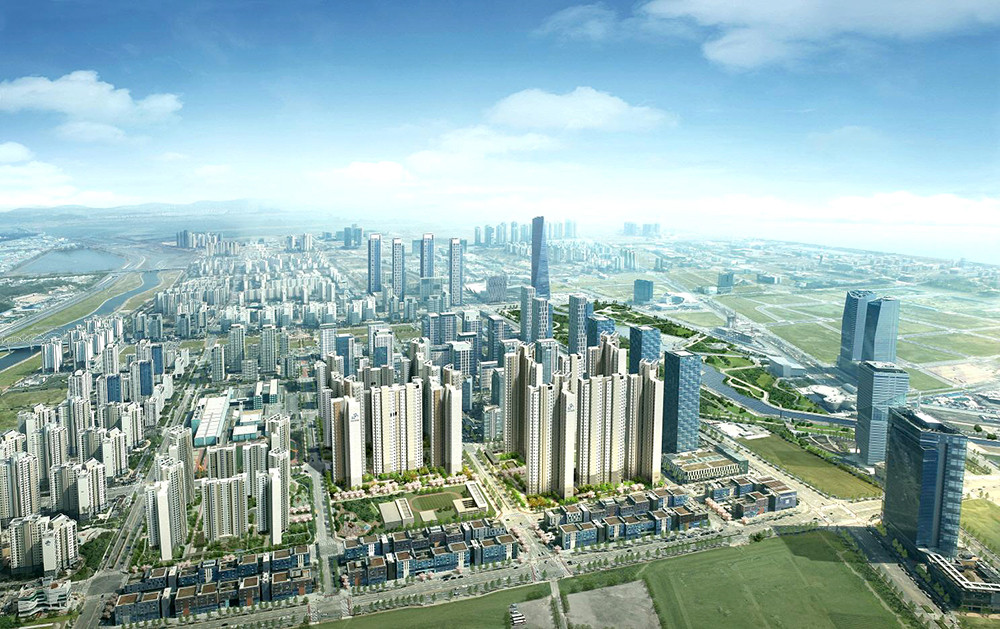Sustainable Smart Cities: a new project to promote better innovative tools
The EIC is working in a website to gather all the projects and case studies to create a common know how

The world is overpopulated. There are a lot of cities around the globe, constantly growing and changing. By the end of 2030, we will be talking about nearly 8.5 billions people. It is estimated that more than 50% of the population is living in urban centers, organized in what we know now as "megacities". This new term has gathered the attention of several political forces and governments that will use this new living system as a way to focus the new geopolitics.
However, despite the constant change and the intentions of the governments, the needs of a city especially regarding the environmental challenges, remain the same: the need to be more efficient while moving goods and people, fighting against the air pollution and carbon emissions, handle the energy demand, recycle waste and have access to a clean and efficient water system. The passion for the new technologies applied to the cities is quite exciting but we can't forget these old needs get bigger the more the cities grow in population and in density.

To fight this new challenges we need a reliable infrastructure we can trust and for that, we turn our sight to the technological innovation. The new improvements will highlight new updates, improving our quality life in a way never seen before. Can we expect the use of real-time remote sensors, the new big-data and the internet of things turn the new infrastructures more efficient and face the sustainability challenges? Are we walking towards utopic smart cities?
The EIC (Environmental Industries Commission) investigation suggests that, even with the constant growing of the sector, we have a lot of demanding tasks ahead. One of the greatest ones is the lack of solid evidence about what these new technologies can provide: we hear a lot about conditionals like could or should, but only a few hads and wills. We can't rely on all of this new tools because it has only been tested in a controlled environment, but not in a large city. And that is a big problem.
Nowadays, it is complicated to find cities that are investing in new projects. For example, United Kingdom, is going on through an austere period and these technologies imply a lot of money and it doesn't mean they are going to work. This leads to a cul-de-sac: the city authorities don't want to spend money in not proved technologies, and we will never know if this new tool work because there are no cities willing to try.
Conscient about this problem, the EIC established a task force to look at the situation and coming to a solution. The idea is to analyze the full spectrum of the actors required, including representatives from cities and central governments, engineering consultants, universities and others. This working group decided that a central industry repository would be useful to promote the case studies, share the best practices and help the cities to face this environmental challenges with smart and effective solutions.
In May the EIC launched the project Sustainable Smart Cities, a free website aimed at the industry to gather and provide a focal point for all the stakeholders involved in the use of big and smart data to create better and cleaner urban spaces. This website will be used as a base to promote an accelerated growth for the industry through a collection of activities that include:
- The website will be the perfect platform for sharing international case studies and best practice. That will help the industry and the city leaders to understand in a wide open way how this new tools works, so they can take better decisions.
- A perfect way to connect people and promoting the collaboration being the perfect neutral element of both parts through networking events, roundtables and seminars.
- The website aims to become a platform for thought leadership, market intelligence, and investment insight.
- To promote the governments and the policymakers both in municipal and national level to create a framework that supports and increases the innovation and its implementation.
By this way, it is easier to capture and use better the data infrastructure of the city. Especially if we know how these new tools work and how to apply them in a more sustainable way. The aim of the investigation is to reach a real-time monitoring that allows a problem prediction before the real problems come up.
Source: http://www.bimplus.co.uk/people/resource-promote-smart-city-technology/












